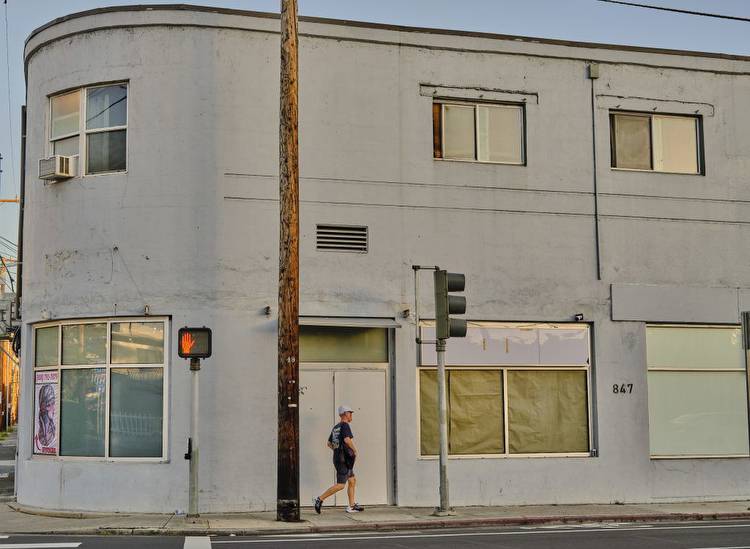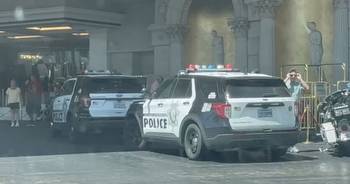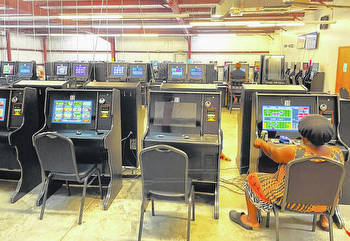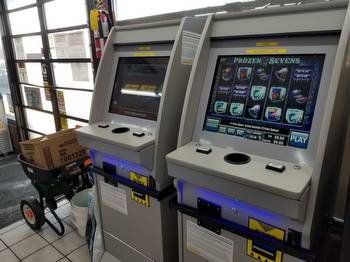Prosecutors Roll The Dice On New Enforcement Measures Targeting Illegal Gambling Rooms

Police officers regularly attending the Nanakuli-Maili Neighborhood Board meeting are asked what they are doing to rid the community of its many illegal gambling rooms.
But Patty Kahanamoku-Teruya, chairperson of the board and a board member for the past 29 years, is not satisfied with their answers.
“Every month since gambling came big time in our community I’ve brought this up to HPD District 8. What is the problem? Why can’t we close them? Why are we having more gambling establishments?” Kahanamoku-Teruya said.
“The problem with the police department and the state is they always say, ‘Oh, we are short of staff, we’re trying our best.’ You get tired of hearing that. Then fill up your vacancies and get your department together. The taxpayers don’t want to hear we are short of staff,” she said.
A new measure to increase the criminal penalties on those working in illegal gambling rooms and renewed legal efforts to remove the financial incentive for property owners to rent space to game room operators will bolster efforts aimed at shutting down these operations, according to Honolulu Prosecuting Attorney Steve Alm.
“Gambling houses are all over the island. No question about it,” Alm said. “We think this could be a real game changer.”
Kahanamoku-Teruya agreed that gambling rooms are a problem across Oahu but said they have particularly taken root on the Waianae coast where she said more than 20 are in regular operation.
“They have increased in Waianae because it is a rural area and it’s in a poor Native Hawaiian minority area so it is easier to have them nestled into the Waianae coast,” Kahanamoku-Teruya said. “In Nanakuli we have a gambling house that we have been trying to shut down for 18 years. For 18 years the community had to get impacted by this gambling house on Hawaiian homelands and we don’t have enforcement. Why?”
“What these gambling houses bring in your community is they change the ambience,” Kahanamoku-Teruya said. “It brings traffic and vehicles in all day long. It brings the chronic people. They push drugs there. They have prostitution there. Everything that is illegal is in a gambling house.”
According to police, 50 game rooms were raided in 2021 and, as of Nov. 15, there have been 29 raids this year, but many illegal operations continue unabated. In January, Lt. Michael Brede told Civil Beat that an investigation into just one game room can take weeks while officers gather enough evidence for a judge to sign a search warrant.
According to state law, it’s not illegal to own or even use a gaming machine unless money changes hands — leaving local law enforcement with little choice but to conduct lengthy investigations with no significant dent in the number of game rooms across the island.
Alm wants to remove the financial incentive for commercial property owners to rent to gambling operators. He is pursuing a nuisance abatement complaint in Circuit Court against defendants KC Management LLC, Wai Tung Kowk and Tom Tran to prohibit them from leasing a building at 845 McCully St. after it was used for an illegal gambling operation. If successful, the building would be closed down for up to one year.
Alm said this is the first time he has filed this type of lawsuit to end the income stream for people that use their property for gambling and other illegal operations.
“If we are successful in the lawsuit, the building owner can be deprived of the use of the building for up to a year, so for a building owner that is a lot,” Alm said. “They will not have income from the building and it is embarrassing for them to be named. Otherwise, it is probably an attractive way to make money by renting it out to somebody that is going to have a gambling game and they may get more than the market rate to make money that way.”
Harsher Penalties For Workers
Attorney Keith Kiuchi represents the defendants in the McCully St. case and acknowledged that the property has been raided three times for illegal gambling, but said all three cases have been dismissed and that tenant is no longer on the property. Kiuchi will argue that the lawsuit is now moot.
“All three cases were based on one individual in one part of the property,” Kiuchi said. “After the third arrest — the landlord, who I represent — asked the tenant to leave and they left. That tenant is no longer there.”
The prosecutor’s office said when the building was raided, police seized cash from the gambling operation. The attorney general subsequently found that there was probable cause to believe that illegal gambling was occurring on the premises and ordered that the proceeds be forfeited.
Following the raid, one defendant asked the court for a one-year deferral of her no contest plea, which the court granted, according to the prosecutor. The defendant met the conditions of the deferral and the case was dismissed in June of this year.
Alm said besides going after the profit motive for landlords, a bill passed by the Legislature this year and signed into law by Gov. David Ige in June will increase the criminal penalties for anyone working in illegal game rooms from a misdemeanor to a felony. He plans to use the harsher penalties as soon as police make new arrests of gambling room workers.
“It’s called promoting gambling. If it is in the first degree, that’s now a class B felony,” Alm said. “The people that are actually physically working it that day, it’s a class C felony. You can get probation and up to five years in prison and it’s not deferral eligible so it will be on your record forever.”
Alm said many of the people that work game rooms do it as a second job to make extra cash, but if it comes with the risk of jail time and a criminal record it may be less inviting.
“A lot of these folks working at these gambling houses have other jobs during the day and they work there at night,” he said. “Their boss may be OK with them getting misdemeanors, but we’re wondering if getting a felony will stop that.”
For Pearl City resident Kirk Southcott these type of legal remedies will likely not come soon enough. Southcott is considering moving from the home he bought in January because the noise from an illegal gambling home right next door is unbearable.
“They are screaming, yelling, gambling every single night,” Southcott said. “We moved to Hawaii from Los Angeles, spent a million dollars on a house and we can’t leave our windows open at night at all.”
Southcott said he and his neighbors regularly call police about the noise and parking problems, but the occupants claim they are engaging in social gambling which is legal, and then only on the weekends. Despite police issuing warnings to the gambling house, nothing has changed, Southcott said.
“It is our dream house and we were lucky to get it but we’ve considered selling,” he said. “We can’t live like this in perpetuity.”





























